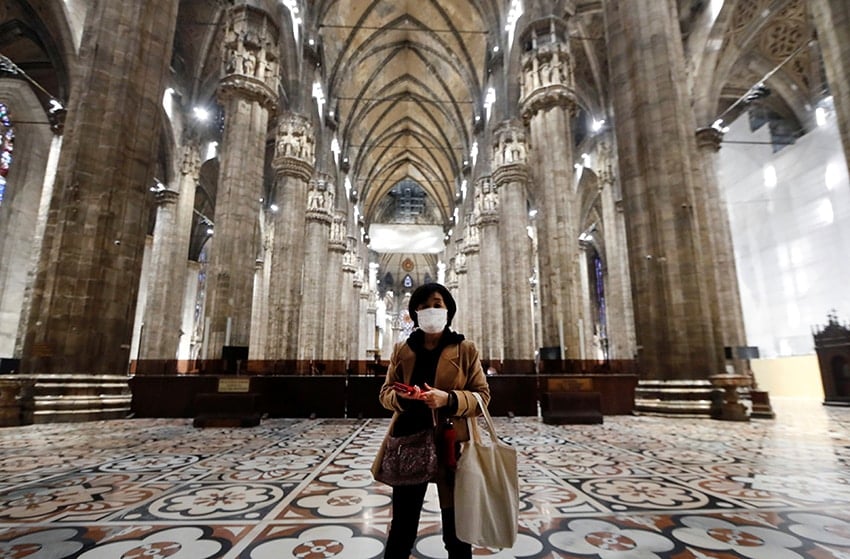
Fr Anthony Paganoni cs writes for The Catholic Weekly from Bergamo in Northern Italy
I have no intention of dwelling on Coronavirus’s seemingly extraordinary ability to keep itself free from all attempts at interdiction. It’s a well-known fact: a hard-working scientific community remains rattled and confused about the mysterious moves and mutations of the virus and, notwithstanding countless lab tests in so many laboratories around the world, it remains stubbornly reluctant to be tamed.
Researchers and virologists have been scientifically observing and trying – unsuccessfully, so far – to unravel its mysterious composition and inner soul. Notwithstanding the hoped-for results and some progress in understanding it, we are still in the dark. Some small gains and advances have been reported in the media, day and night, and briefly discussed. And some progress has been made. But, as of today (18 March) no definite remedy or cure is available.
The initial response
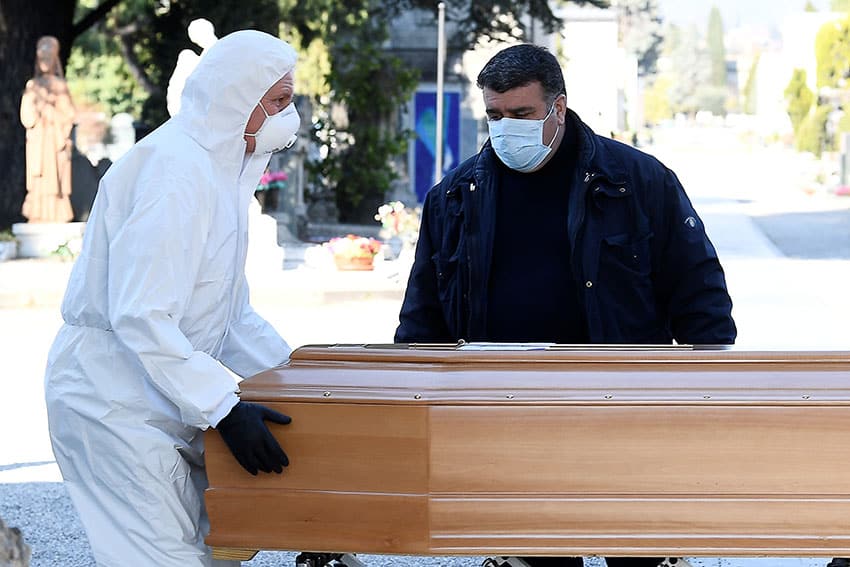
Personally, my thoughts and telephone calls run constantly to my birthplace in the province of Bergamo, which has been hit by Coronavirus in a massive way, forcing its health facilities to its knees. My thoughts (using only the internet) turn frequently to the so-called underdeveloped areas of our globe, where health facilities are either lacking or not sufficiently equipped to face a gruelling test such as the one presented by the virus.
Italian people, rather inclined to openly criticise the initiatives of the central or regional governments, have been restrained in censuring the effective synchronisation of government responses. Many commentators tend to take a lenient view: it was first thought to be and remain a “Chinese or Asian phenomenon”. The spread of the virus in Italy, starting in Lombardy, was a jolt to both the media and public officials.
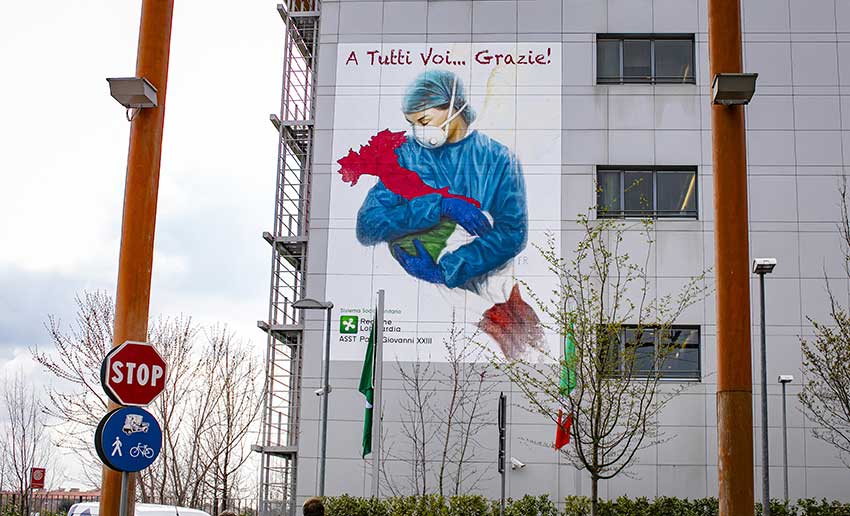
A change
For a few days, their recommendations were repetitive along the lines of: ‘stay calm’; ‘don’t exaggerate your reactions and avoid very emotional statements, particularly in the presence of children… and so on. Now the music has certainly changed: central and regional authorities repeatedly insist: ‘observe the rule in force and quarantine yourselves – even if it means bringing to a halt the industrial sector and the tourism industry’ (with the exception of food and drink production, the healthcare sector and its facilities).
There have been problems in the Italian jail system: inmates attempting escape and going on the run. Some have been successful but most were recaptured by the carabinieri. This latest episode has heightened the level of anxiety and fear experienced particularly by elderly people living alone, isolated and sequestered in their residences.
This latest episode has heightened the level of anxiety and fear experienced particularly by elderly people living alone, isolated and sequestered in their residences.
Notwithstanding the flurry of news – interspersed with accusations of various kinds running back and forth – temporary measures once thought to be authoritative and aimed at containing the spread of Coronavirus have failed to prevent this infection from becoming the Number One Italian, European and international challenge. Born and bred in one of the mighty economic powers in the world, it quickly spread.
Technological progress looks far weaker than we assumed
I think of the popular cruise ship Diamond Princess, which was kept in forced isolation in Yokohama, Japan. It is regarded as a jewel of modern technology, created for the delightful experience of numerous international tourists.
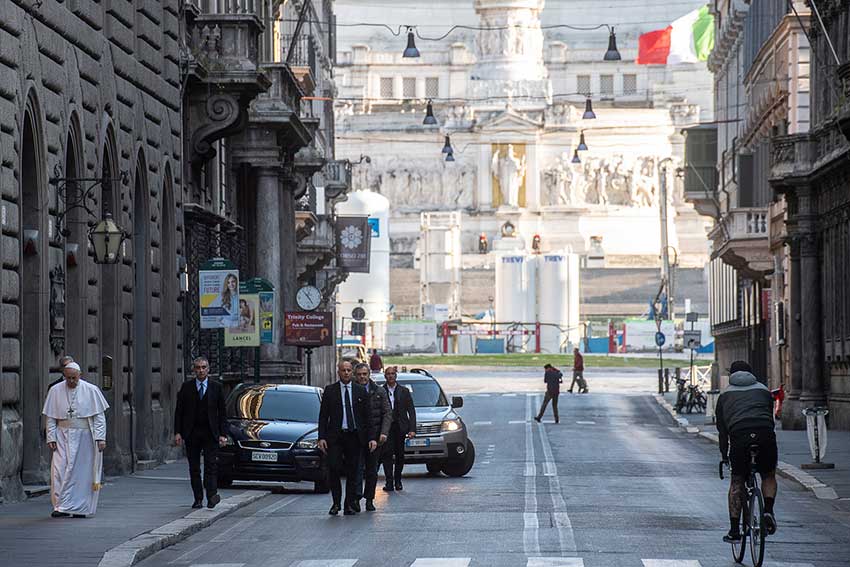
The Coronavirus has launched what is almost a full frontal attack against these specimens of our industrialised civilisation, suddenly revealing the limited strength of our hitherto laudable achievements. They are much more vulnerable and fragile than we had at first thought them to be.
A force that annihilates our assumptions
Our vulnerability has been exposed and put centre-stage in the international public arena. Until a few weeks ago, this particular feeling (one journalist prefers to call it vulnerableness) had been spoken of as a marginal thing or a distant threat, discussed by academics in a cold and indifferent fashion and feared by younger generations, as climate and the arms race had been gathering renewed vigour. Yet Coronavirus has fractured and annihilated any idea of self-omnipotence and almost absolute self-reliance and safety.
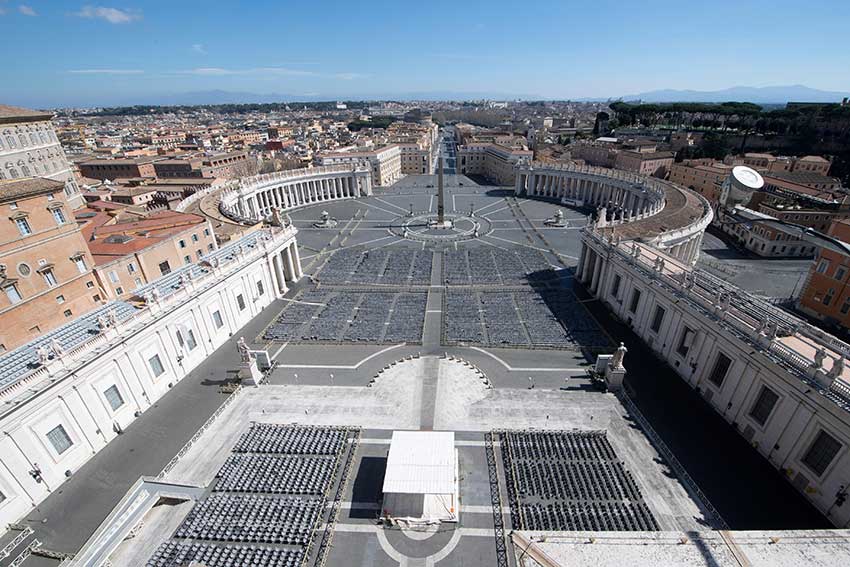
Contemporary technology, the world of science and its admirable developments, with their ill-conceived promise of near immortality, have turned their back on the many efforts to build impenetrable walls around us. I am not referring to some unwanted human flows of migrants that can be curtailed or even sent home (to where?). But they cannot save us from a small, invisible virus which is only too lethal.
But a new vista?
Coronavirus has declared war on any form of self-exaltation by humans. We are all – all of us – living on this earth, utterly naked as we have been for countless millennia. It show us that wherever human bodies and minds have existed and colonised the surrounding environment and flourished in countless civilisations, in the many yesterdays and in the still-to-come tomorrows, we remain a needy and incomplete genre. Coronavirus resembles a pervasive, silent revolution, doing away mercilessly with all the old-fashioned illusions and – I hope – re-opening the vista of a humanity, hopefully united in the same concerted effort at promoting life and dignity for all.
Related:
- Archbishop’s Pastoral Letter in Time of Pandemic
- Archdiocese of Sydney posts measures for dealing with pandemic
Fr Paganoni is currently living and working in the province of Bergamo, northern Italy, part of the Lombardy region which became the epicentre of Coronavirus in that country.
